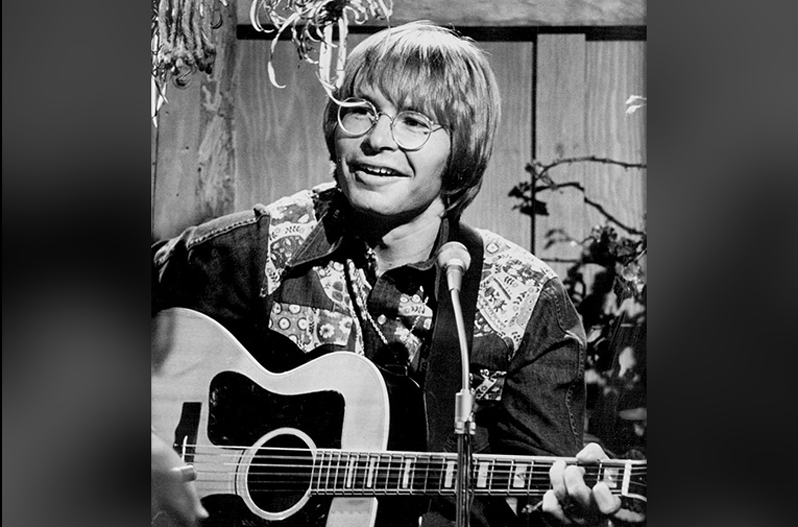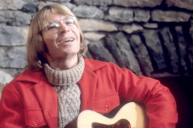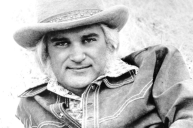On Oct. 12, 1997, 18 years ago today, John Denver died in a single-person experimental plane crash. He died as he lived — adventurously, controversially and chasing his own free spirit.
Last year, the Country Music Association honored Denver by making his song "Take Me Home, Country Roads" the anchor tune in its massive "Forever Country" mashup. The other songs used? Willie Nelson's "On The Road Again" and Dolly Parton's "I Will Always Love You."
And yet people still argue about John Denver's place in country music lore.
A really big deal
A quick note, here, for people who may not realize just how huge John Denver was. He was America's best-selling artist in 1974 and had four No. 1 singles between 1974 and 1975. His album, John Denver's Greatest Hits, sold nine million copies. He wrote two thirds of his 300-plus song catalog and sold more than 33 million albums.
On top of that, he did it while being effortlessly himself. Denver never scored much favor with the critics. In fact, his folksy look and sound came about a decade too late, right in the heyday of the 1970s rock movement. But the people loved him for his often cheery attitude and optimistic songs.
Plus, he addressed his critics with an infectiously humble viewpoint. "Some of my songs are about very simple things in life," he once told People. "But those simple things are meaningful to me and have obviously meant something to people all over the world, even if it's only in a karaoke bar."
Denver also established himself in the public eye through his various film and television appearances, not to mention his philanthropy and efforts to end hunger.
Contentious in the country world
John Denver's first taste of massive success came in 1971 with Poets, Prayers & Promises. The album featured the aforementioned "Take Me Home, Country Roads." His star rose higher over the next several years and in 1974 his album Back Home Again solidified him as a country hitmaker.
The album and its 1975 follow-up, Windsong, went No. 1 on both the country and the pop charts. Actually, Denver landed seven albums in the top 10 of the country charts throughout his career, including five in a row. Come on, every country fan loves "Thank God I'm a Country Boy."
If anything, Denver put a very distinct face what some country musicians saw as pop music encroaching on country music. Of course, you and I both know pop and country have been and will forever be intermingling. But in the mid-1970s, Denver's giant granny glasses and infectious smile couldn't save him from the ire of some fellow musicians.
That ire came to a visible head in 1975 at the CMA Awards. Denver had already won Song of the Year for "Back Home Again" and won album of the year for that same album in 1974. So when Charlie Rich went up to give the "Entertainer of the Year" award, a lot of eyes were on Denver.
Rich, who had won the award the year prior, was obviously drunk. He labors through the nominees: Denver, Waylon Jennings, Ronnie Milsap, Loretta Lynn, Conway Twitty. Then, upon ripping open the CMA slip, he pulls out the name card and lights it on fire, then reads the name: "John Denver."
https://www.youtube.com/watch?v=OGkbdLsBRrY&t=67s
Denver had no idea what was going on because he was actually accepting the award via satellite (he was on the road at the time). Most people took it as a subtle protest against somebody who had so much success in pop music coming in and taking country's highest honor too. Rich's son disagrees. But the damage was done. From that moment, it was kinda cool to hate on Denver, even if he was making some of the best country music of those years.
Many sides to the man
Denver was a polarizing figure, both in and out of his music career. While he carried a wholesome image, the mop-topped music man later revealed the harsh truths of his early days in his autobiography. Denver recounted tales of domestic violence, drug use and DUIs. In fact, at the time of his death, Denver wasn't legally allowed to fly.
Yet Denver also showed immense compassion and appreciation in his life and career. He fought voraciously to end hunger. So much so that both Presidents Carter and Reagan honored his humanitarian efforts. Not to mention his wildlife conservation efforts like the Windstar Foundation, which saved 1,000 acres of land in Colorado.
Denver's outspokenness may have also rubbed some of the country elite the wrong way. Denver lobbied consistently for his personal political beliefs, which usually aligned with the Democratic party. He played concerts in communist countries in protest of certain causes. He loved flight and even passed NASA's physical exam and was chosen as a finalist for the first civilian in space before the Challenger explosion curtailed the experiment.
Denver never let limitations stop him, both in his life and his music. Nowadays his music would probably be too country to even make it on the radio. It's almost silly to think about the controversy over his music getting so much love from the country world. Don't be surprised if he rightfully makes his way into the Country Music Hall of Fame someday. He deserves it. Just listen to his "Song of the Year" winner.
https://www.youtube.com/watch?v=EYffvVIwOg0
In the infamous words of David Allan Coe, "If that ain't country..."




